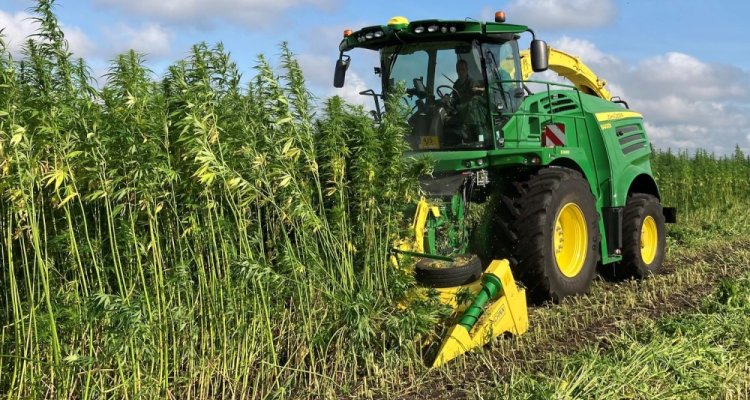
News
Each Dutch region its own distinctive biobased focus
Regions play a significant role in the pursuit of climate objectives, especially in fostering the advancement of the bioeconomy. However, determining which region or province should focus on which biobased value chains, including the processing industry for for instance textiles and building materials, is not always straightforward.
The Wageningen University & Research report titled ‘Regional supply of herbaceous biomass for local circular bio-based industries in the Netherlands’ helps regions in making informed decisions regarding the development of sustainable circular value chains, primarily based on fibrous biomass or biobased resources.
Specialisation by region
The demand for biobased raw materials is anticipated to experience substantial growth, and each biobased feedstock has its own array of potential applications. The shift towards regional or even local sourcing of raw materials for circular bio-based industries involves numerous considerations. These encompass primary production (cultivation), the gathering of by-products (such as reeds and roadside grass), and investments in the scaling-up of conversion technologies, progressing from pilot initiatives to regional demonstration installations and eventual industrial-scale implementation. Technological advancements, the coordination of quantities and scales, biomass and bio-based product cost structures, as well as the delivery of public benefits, consumer behaviour, and regulatory aspects, also come into play.
Consequently, when selecting specific chains, provinces must not only evaluate the availability of raw materials and crops, but also factor in their impacts on and interactions with all these other aspects. Taking all these considerations into account reveals that not every chain is suitable for every region. Consequently, diversification between regions and decision-making are of paramount importance.
Martien van den Oever, Senior Researcher at Wageningen Food & Biobased Research (WFBR), explains: "Ultimately, it boils down to selecting an appropriate scale in a suitable location. Factories often operate on a large scale for economic reasons. For a country like The Netherlands a single factory with a comprehensive supply chain often suffices. Nevertheless, The Netherlands boasts considerable regional diversity, necessitating regions and provinces to deliberate on their areas of focus”.
50,000 hectares of agricultural land for materials
Considerable resources are required. To replace 25 to 50% of fossil and imported fiber raw materials for textiles, insulation, facades, panels & boards, and paper pulp, we not only require the entire available production of grass and reeds, but also the substantial quantity of grain straw that is currently ploughed underground. In addition, approximately 50,000 hectares of land are necessary for cultivating supplementary fibre crops. Although this is quite substantial, it is not an insurmountable task compared to the overall agricultural area in The Netherlands which spans 2.2 million hectares.
Moreover, the cultivation of flax, hemp, Miscanthus, and reed brings about a favourable impact on biodiversity when compared to traditional crops, thereby contributing to the natural environment. The extent of these effects may vary locally and hinge upon local conditions.
The vital role of regions and provinces
Efficient management is essential for expediting the transition and sidestepping the ‘chicken and egg problem’. Farmers seek assured sales for their crop products, the market demands guaranteed supplies of (bio) resources, and consumers desire products with demonstrated performance. These diverse stakeholders harbour distinct interests and rely on one another for scaling up, yet they often find themselves in a standstill, each awaiting the other's initiative. Regional governments in particular play a pivotal role in coordinating and facilitating the resolution of this dilemma. They maintain significant contacts with and have influence over the required stakeholders, issue permits, and possess comprehensive awareness of ongoing developments.